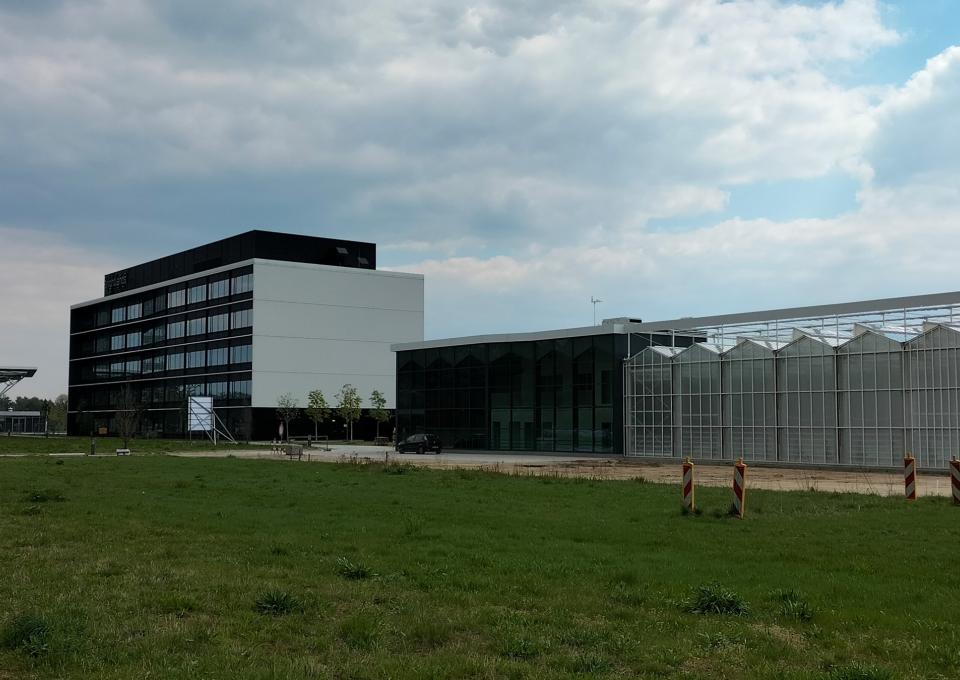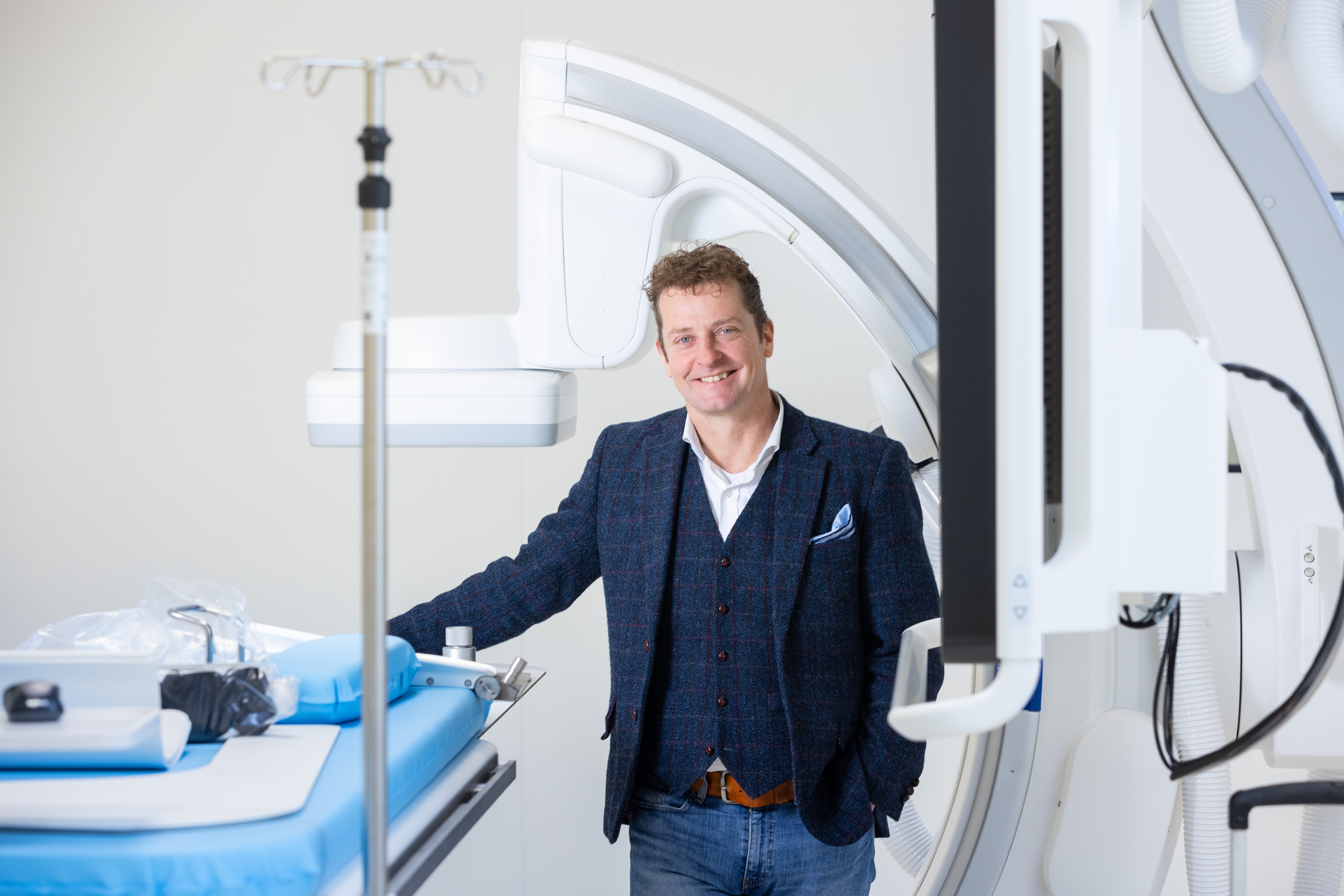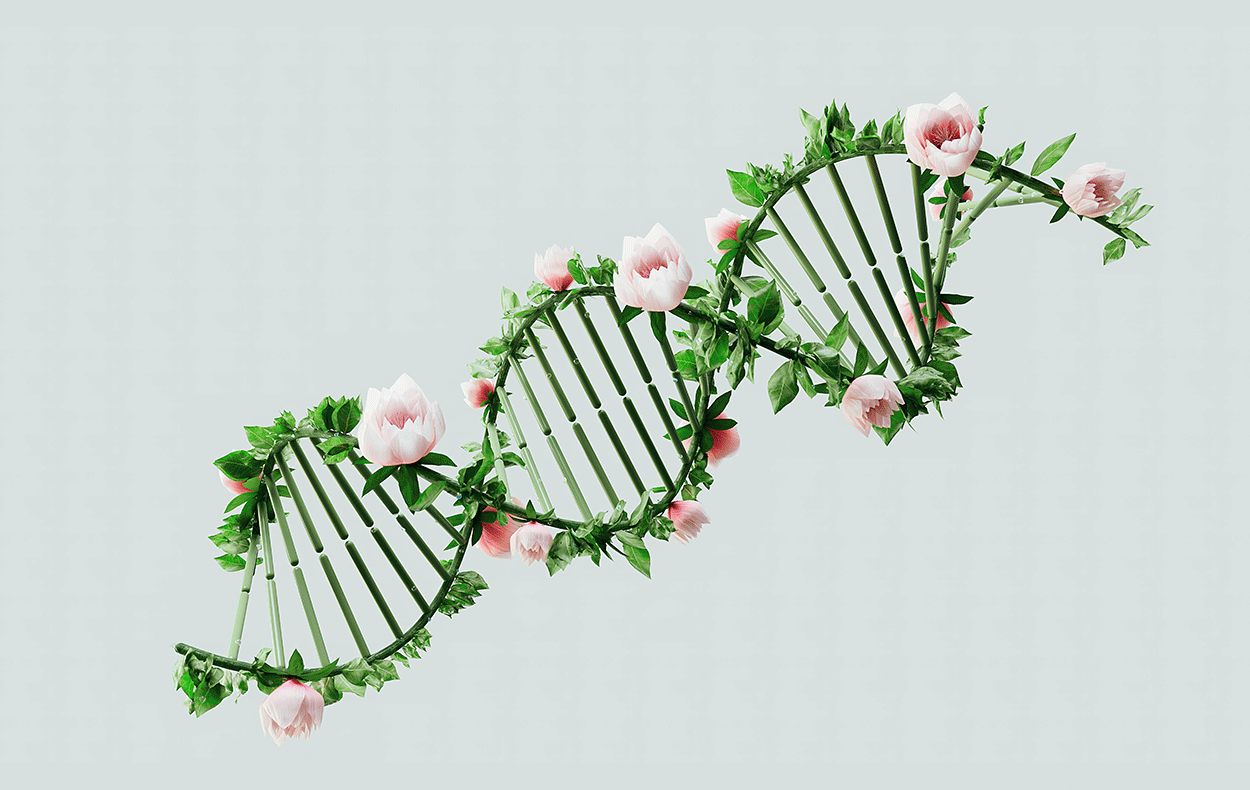Five years KE@Work, more A-team than Beauty and the Beast
KE@Work celebrates its fifth birthday this year. Last year, the programme received international recognition in the form of two silver Reimagine Education Awards. Among those was a prize in the category Best University-Employer Partnership. What makes the KE@Work partnership unique, and which philosophy is behind the programme’s collaboration?
KE@Work is an honours path for bachelor’s students of the Data Science and Knowledge Engineering programme. Next to their studies, students work at local businesses for two years, where they tackle projects related to artificial intelligence. They receive extensive guidance from UM researchers during this period. An unusual combination? Not according to KE@Work’s initiator, Frank Thuijsman.
We asked Frank and a number of other KE@Work partners about the differences and similarities between KE@Work and three rather different partnerships: Beauty and the Beast, the A-Team and the founders of Google.
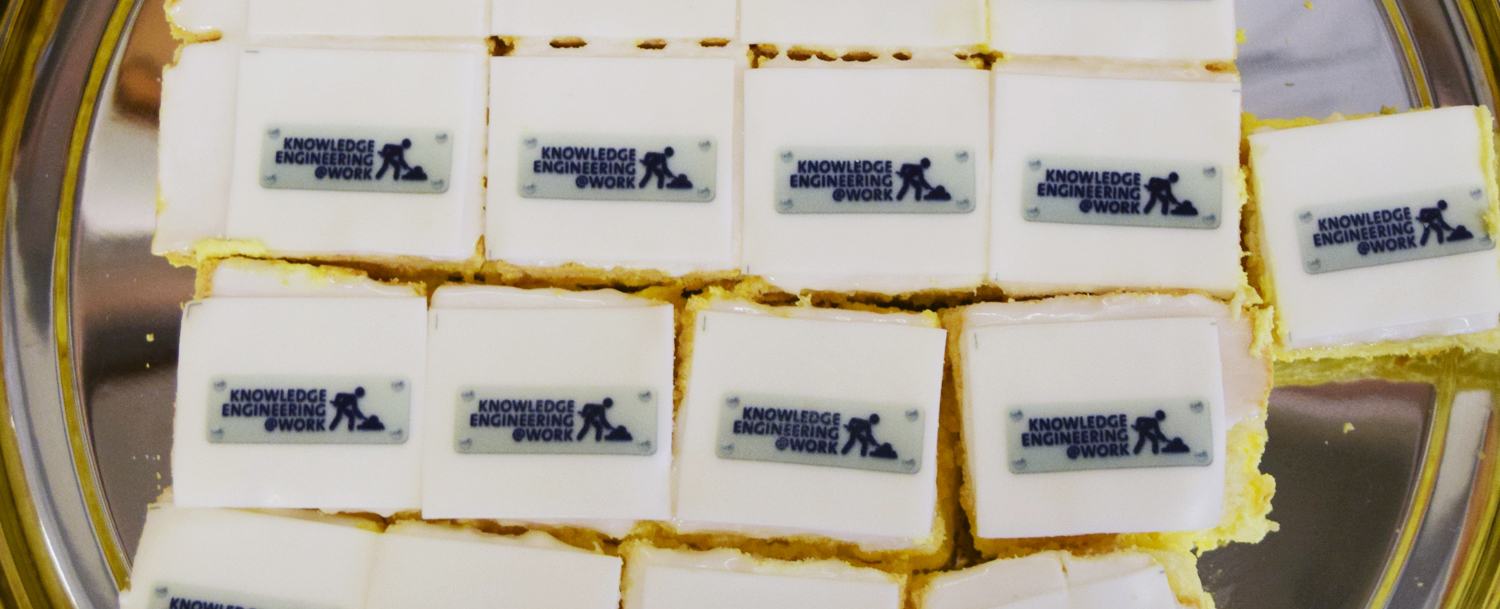
Department of Data Science and Knowledge Engineering
No Beauty and no Beast
Frank doesn’t see a connection between KE@Work and Beauty and the Beast, the fairytale about a young woman who is forced to live with a monster. Elmer Nelis, managing director of the Heerlen-based company Mediaan, quickly explains Frank’s hesitation. None of the KE@Work partners had any reservations before going in. “At Mediaan, we knew that the developments in data science would become very important to us. When Frank was trying to establish KE@Work in 2013, we right away said: we want in.”
KE@Work alumna Danni Liu also took to the programme immediately. “I thought, yeah, this is my thing! I was looking for possibilities of getting work experience. This would be my second study and I didn't want to enter the labour market with six years of study experience, but no real-life work experience.” Danni’s choice paid off. She partnered up with the cloud computing company Open Line, where she continued to work upon graduating.
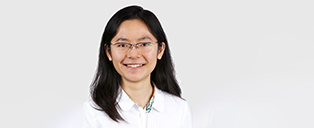
Danni is a KE@Work graduate. As a bachelor’s student, she went to work for Open Line in Beek, Limburg. She continued to work for Open Line while pursuing a master’s degree in Artificial Intelligence.
Yin and Yang all over
Enthusiasm is one thing. However, for such a partnership to work, many things need to balance out: work and study, for example, but also the interests of a company and those of a university. “Of course”, Elmer says, “those don’t necessarily align. We are looking for good students just like the university is. We want them to work on real projects, which is in our interest, but we also understand that they are students.
In the end, I also want them to finish their studies.” Frank adds: “We tell our students that they are members of a team. It’s fine to think and talk about everything that goes on at the company, but keep an eye on your study assignment.”
For Danni, finding her balance was more about practical things. “I’m guessing for many students it’s a switch, from a student-type of schedule to a work-oriented schedule. Commuting was the additional load to me. Oh, also the whole bringing lunch to work! I started cooking double portions in the evening and bringing half to lunch.”

Even higher grades
However, contrary to what you might expect, KE@Work doesn’t usually take away from academic performance. “Students realize through KE@Work that there is more to studying than just passing an exam”, says Ellen Narinx-Schrauwen, who coordinated the programme until recently.
Frank shares that observation. “Before, they would work just to pass a course, but now they want to be prepared for whatever they encounter at work. As a result, in most cases their grades actually go up.”
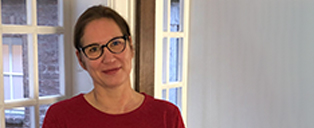
Ellen became the first KE@Work coordinator in 2015.
The DKE-Team, a friendlier version of the A-Team
After showing a picture of the A-Team, known for their 80’s television show, we learn that the A-Team never rose to fame in Danni’s birth country China. Danni, after an explanation from current KE@Work coordinator Mel Schickel: “Ah, so you want to know how we cooperate. Open Line colleagues said to me that KE@Work staff constantly checked how students were doing. They really cared.” Elmer had similar experiences. “The university’s strong involvement with the programme shows in the students. They are a tight-knit bunch: they look for each other’s company and they work together nicely. These students also have the right kind of knowledge and the proper mindset. Their foundation was laid down in Maastricht, and I really credit Frank and the people at DKE with that.”
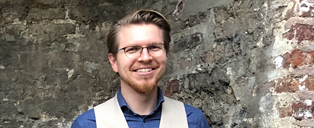
Mel took over as KE@Work coordinator in September 2018.
The DKE-Team indeed keeps a close eye on their students. Mel: “We track how students do at exams. If their performance suddenly changes, I’ll ask them what's going on and whether I can help them. I understand that sometimes things just don’t work out, and most of the time it all goes well.” Danni believes that the voluntary nature of the programme is another one of its strong points. “Students choose to join, because they see – for whatever reason – something in it for themselves. That motivated group of students is your starting point.”
“Students choose to join, because they see – for whatever reason – something in it for themselves. That motivated group of students is your starting point.”
Students as full-fledged employees
Frank is happy to see corporate KE@Work partners who are able to place themselves in the students’ shoes and who don’t underestimate them. “What I like about Mediaan is that students are genuinely part of the team.” Elmer nods. “With us, students get an introduction like any other employee. They participate in the HR cycle and join us at company parties. We also visited clients together. The key is to take into account that they are students. In the beginning, that took us some getting used to. For example, during exam week, they suddenly weren’t there.” Frank: “Mediaan sees the value of combining work and study. Upon graduating, students want to earn money. Instead of just hiring them, Mediaan would offer them a half-time contract so they could still study for their master’s degree with us.”
Meanwhile, the Department of Data Science and Knowledge Engineering adapts too. The department checks their curriculum against the many contacts across industry. Ellen: “We need to know what is happening at these companies. Are we preparing graduates the right way? If students are doing something different in the field than what we are training them for, we need to change something.” The other way around, KE@Work students bring new knowledge to the businesses that employ them. “In some large companies, they still do everything with Excel files”, Ellen continues. “No matter how young, students can say: we might be able to do this in a more efficient way.”
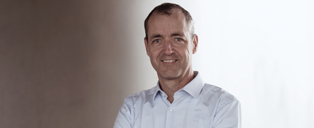
Elmer is the managing director of Heerlen-based technology company Mediaan. Mediaan has participated in KE@Work from the beginning. Since then, they host at least two students every year.
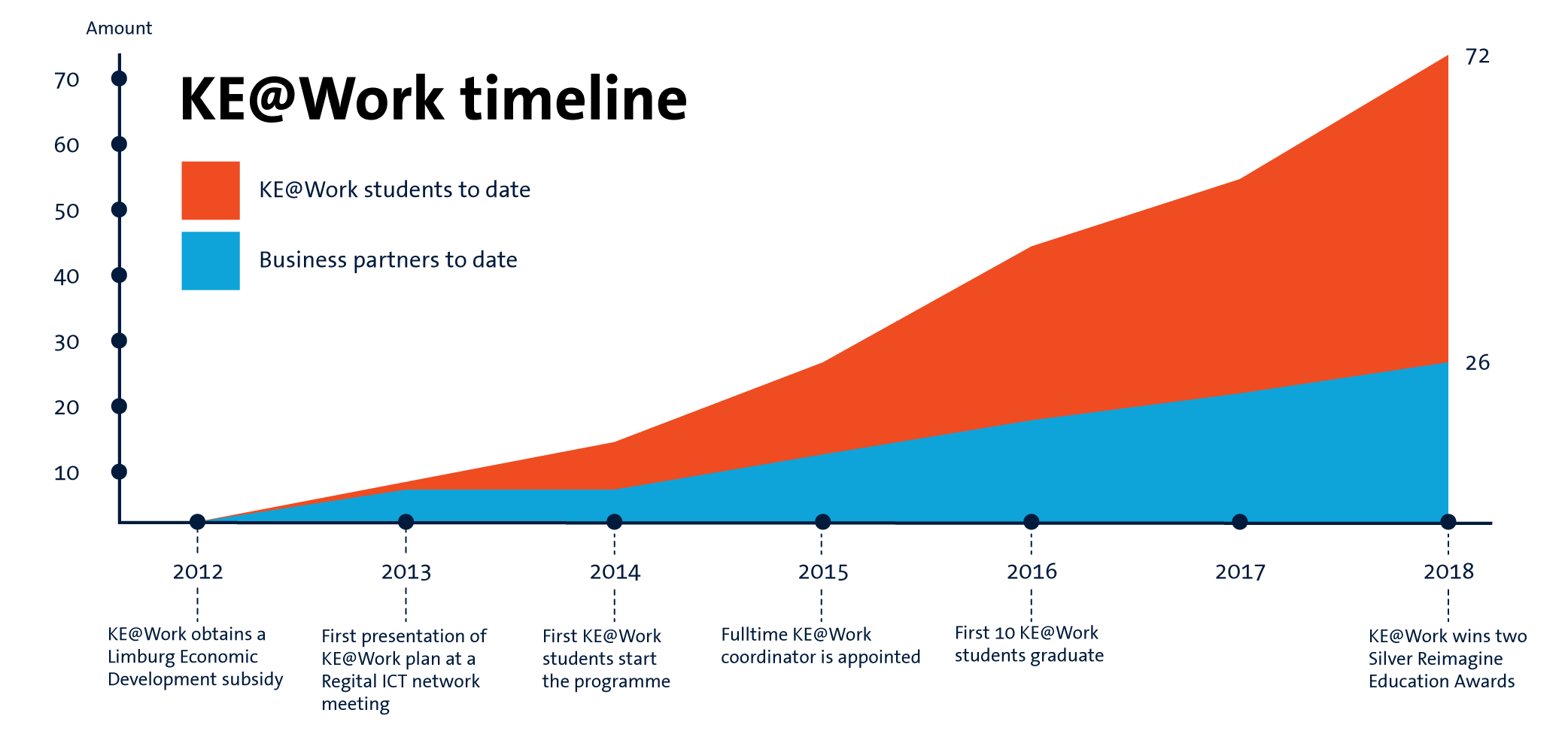
Company revolution
In the meantime, Mediaan underwent somewhat of a revolution. “I always say: Mediaan is a technology company, but in the coming years, we grow towards becoming an AI (artificial intelligence) business.” Elmer proudly dishes up some numbers. “When we started KE@Work, we didn’t have any data scientists on board. We now have seventeen. Five of those are current KE@Work students. Others completed KE@Work with us and stayed after graduating. In total, 15 of our 17 data scientists have a connection to DKE in Maastricht. They are all very good: for example, we have a partnership with a large telecom business, which we would not have had without KE@Work…and all of this over the span of just five years? Many companies want something similar.”
KE@Work changed something else at Mediaan. English has replaced the local dialect almost entirely as the company’s main language. “The discussion about international students, how having them supposedly takes away from education, I think it’s a discussion not worth having at all.” Elmer is firm in his words. “Those are all very good people. They travelled to study here. They are motivated, and this shows in our company. My message to other businesses would be: embrace the international aspect. It’s very important if you look at the broad picture, that you can keep people like them here in the region.”
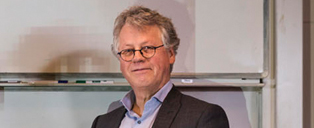
According to Frank Thuijsman, trust is the key. “All of KE@Work is built on trust. In the early days, we said it out loud: we cooperate, because all three parties – students, businesses and the department – see each other’s good sides. That is different from a pure business contract."
Good role models, still a bad influence
To end on familiar terrain, we show a picture of Larry Page and Sergey Brin. Frank springs up when he sees the founders of Google. “Yes, guys like these are role models to our students!” Unsurprisingly, Danni recognizes them immediately. Frank: “Students often want to start a tech company. The sooner, the better, and because of that they don’t always graduate. That is one of the reasons I started the programme: to keep engaging students with their studies, and to give them something to fall back on before acting out their big plans.”
Sustainable cooperation within the region
So what about future plans for KE@Work? Frank: “To me, the bigger picture has always been about building sustainable relationships. Obtaining research funding via our local partners, for example. I always tell companies: look, this is what you do with students. If you see more opportunities, with PhD students or with researchers, you can go much deeper. I favour sustainability. That fits the current times well, I think.” Mel agrees. “Everything is about creating local cooperation. There is a reason for everyone to be in the programme, and that is what defines KE@Work.”
Also read
-
Over the next four years, four young researchers can start research into crop biotechnology and engineering, thanks to the collaboration between Radboud University and Maastricht University. The researchers will start work at the Brightlands Campus Greenport in Venlo, halfway between the two...
-
Lee Bouwman, a vascular surgeon and endowed professor of Clinical Engineering, specialises in the implementation of groundbreaking healthcare technologies. The key to success, he says, lies in the collaboration between engineers and clinicians. This approach has already resulted in a range of...
-
Researchers from across the world have mapped the genetic relationships of the majority of flowering plant genera. Maastricht University helped with this massive effort, which completes the evolutionary tree of life of plants like never before. The famous scientific journal Nature published their...
